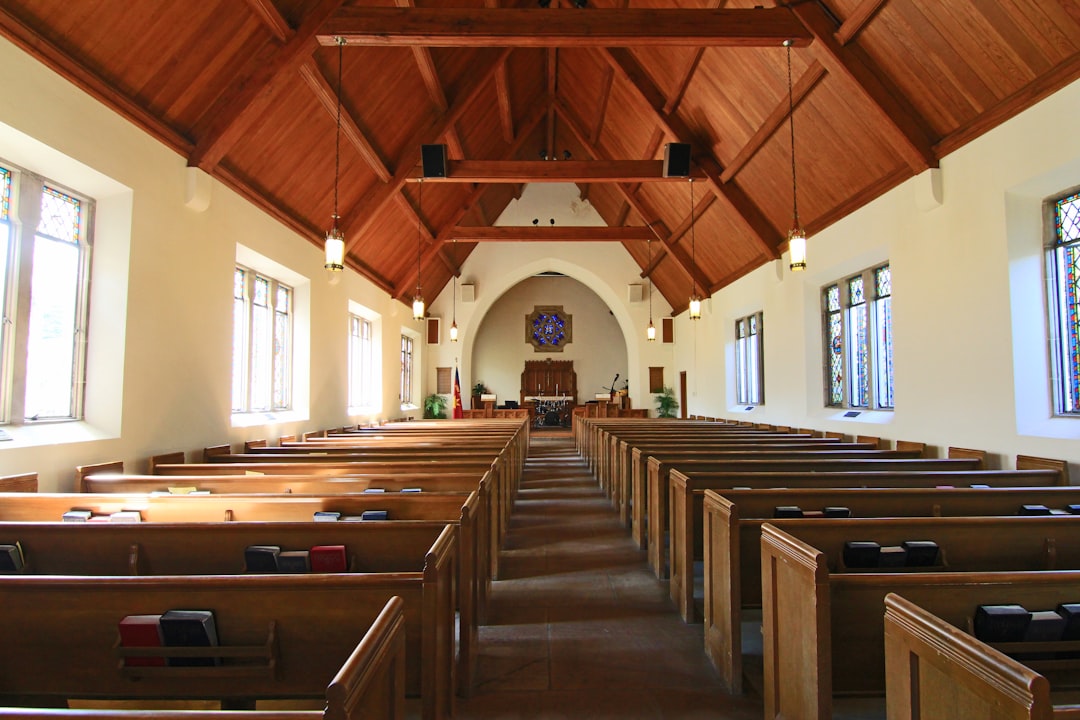In close-knit communities, clergy abuse often goes unreported but is a serious issue requiring greater awareness. Victims may exhibit fear or sudden behavioral changes upon leaving religious institutions due to manipulation, coercion, or physical assault, leading to lasting trauma. Georgia's robust legal framework, including a statute of limitations and specific discovery rules, addresses clergy abuse, offering victims justice and closure. Experienced clergy abuse attorneys in Georgia play a vital role, guiding victims through civil and criminal proceedings, holding perpetrators accountable, and ensuring compassionate support. Connecting with such an attorney is essential for seeking justice and healing. Institutions can foster safer communities by empowering victims, implementing robust reporting systems, and advocating for policies that hold themselves accountable.
In Georgia, as across the nation, the issue of clergy abuse has come into sharp focus, demanding attention and action. This comprehensive guide explores the complex landscape of clergy abuse, emphasizing the rights and resources available to victims in Georgia. From recognizing patterns and understanding the impact to navigating legal frameworks and seeking justice, this article delves into crucial aspects. We highlight the importance of finding a qualified clergy abuse attorney in Georgia for survivors to take action against abusers and hold religious institutions accountable.
Understanding Clergy Abuse: Recognizing the Patterns and Impact in Georgia

Clergy abuse is a sensitive and complex issue that often goes unnoticed or unreported within close-knit communities. In Georgia, as in many states, cases of clergy abuse have emerged, highlighting the need for greater awareness and understanding. Recognizing patterns is crucial; victims may exhibit signs such as fear, anxiety, withdrawal, or sudden changes in behavior upon leaving a religious institution. These issues can stem from emotional manipulation, coercion, or even physical assault, creating lasting psychological trauma.
Legal professionals specializing in clergy abuse cases play a vital role in supporting and advocating for victims in Georgia. They help individuals navigate the legal system, offering guidance on civil and criminal proceedings. With their expertise, victims can seek justice, healing, and closure, ensuring that perpetrators of such abuses are held accountable.
The Legal Framework: Exploring Georgia's Laws and Protections for Victims

In Georgia, the legal framework plays a critical role in addressing and protecting victims of clergy abuse. The state has implemented various laws to combat this issue, providing a measure of justice and closure for those affected. One key aspect is the statute of limitations, which allows victims to come forward within a specified time frame after the abuse occurs. This is crucial as it ensures that cases can be pursued even years later, offering a chance for accountability.
Georgia’s legal system also recognizes the unique nature of clergy abuse and has established protocols to handle these sensitive cases. The state encourages victims to report such incidents to relevant authorities, ensuring confidentiality and prompt action. Additionally, there are specific rules governing discovery processes, which enable victims and their attorneys, like experienced clergy abuse attorneys in Georgia, to gather evidence effectively while protecting the privacy of both parties.
Taking Action: Finding the Right Clergy Abuse Attorney in Georgia

If you or someone close to you has been a victim of clergy abuse in Georgia, it’s crucial to take action and find legal representation that specializes in these cases. The journey to justice starts with choosing the right clergy abuse attorney who understands the unique complexities of such matters. In Georgia, there are specialized legal professionals who have extensive experience handling these sensitive cases, ensuring victims receive the support and compensation they deserve.
Victims of clergy abuse often face complex legal challenges when pursuing justice. A skilled clergy abuse attorney in Georgia will be well-versed in state laws regarding statute of limitations, evidence requirements, and the specific procedural steps needed to build a strong case. They should also possess a deep understanding of the psychological impact such trauma can have on individuals, treating clients with compassion while advocating for their rights.
Supporting Survivors: Navigating the Legal Process and Seeking Justice

Survivors of clergy abuse often face a complex and challenging journey as they navigate the legal system to seek justice. In cases involving sensitive and personal matters, having an experienced clergy abuse attorney in Georgia by their side can make all the difference. These specialized legal professionals are equipped to guide victims through the intricacies of the legal process, ensuring their rights are protected. They provide a safe space for survivors to share their stories and offer tailored strategies to hold accountable those who have caused harm.
With expertise in this specific area of law, clergy abuse attorneys can help victims understand their options, explain legal procedures, and advocate for their best interests. They facilitate communication between survivors and relevant authorities, ensuring proper documentation and evidence collection. This support is crucial in building strong cases that lead to justice and closure for those who have suffered at the hands of religious leaders.
Prevention and Accountability: Advocating for Change within Religious Institutions

In the ongoing fight against clergy abuse, it’s imperative to focus on prevention and accountability within religious institutions. A significant step forward involves empowering victims and advocating for systemic change. By encouraging open dialogue, implementing robust reporting mechanisms, and fostering a culture of transparency, these organizations can better protect their members. Georgia clergy abuse attorneys play a crucial role here, guiding survivors through legal processes while pushing for policies that promote institutional responsibility.
Change within religious entities starts with recognizing and acknowledging the issues. Legal professionals can assist in crafting guidelines and protocols that ensure proper handling of complaints, offer support to victims, and hold perpetrators accountable. This multifaceted approach not only provides justice for those harmed but also strengthens the spiritual community by fostering an environment where safety and respect are paramount.






